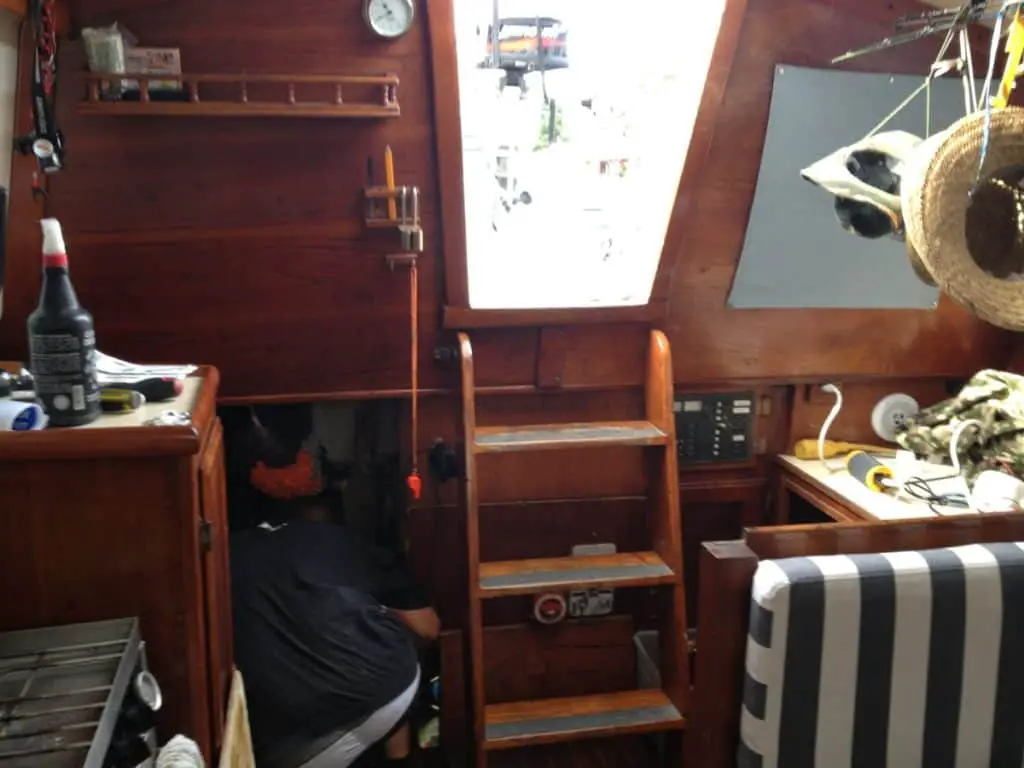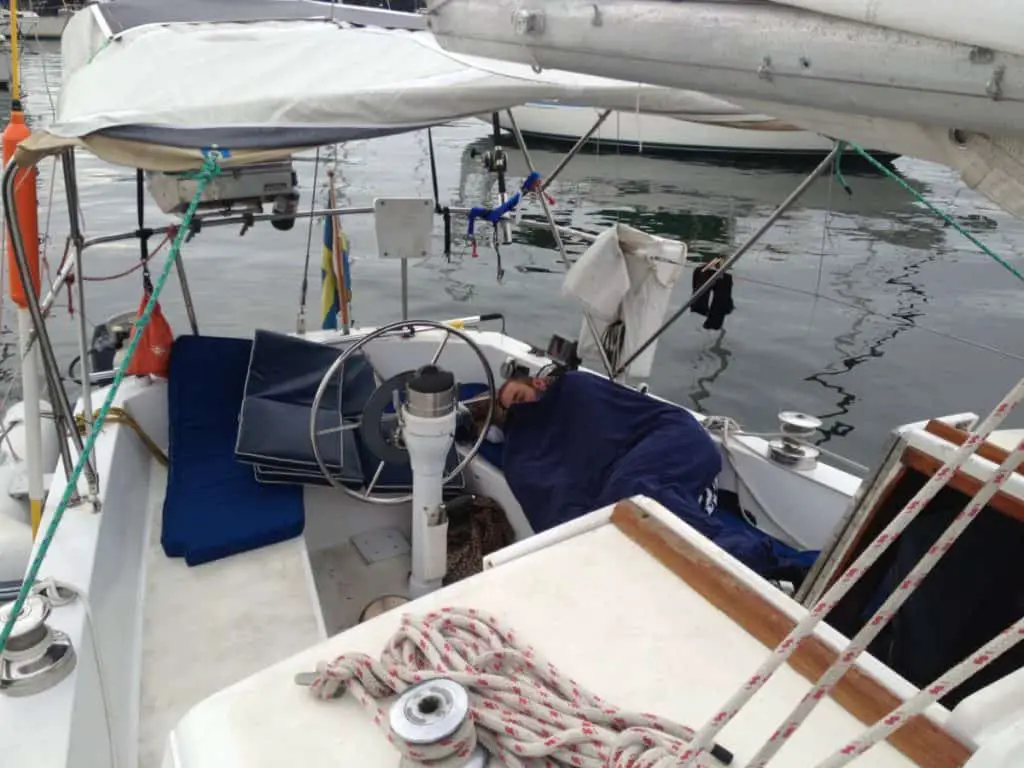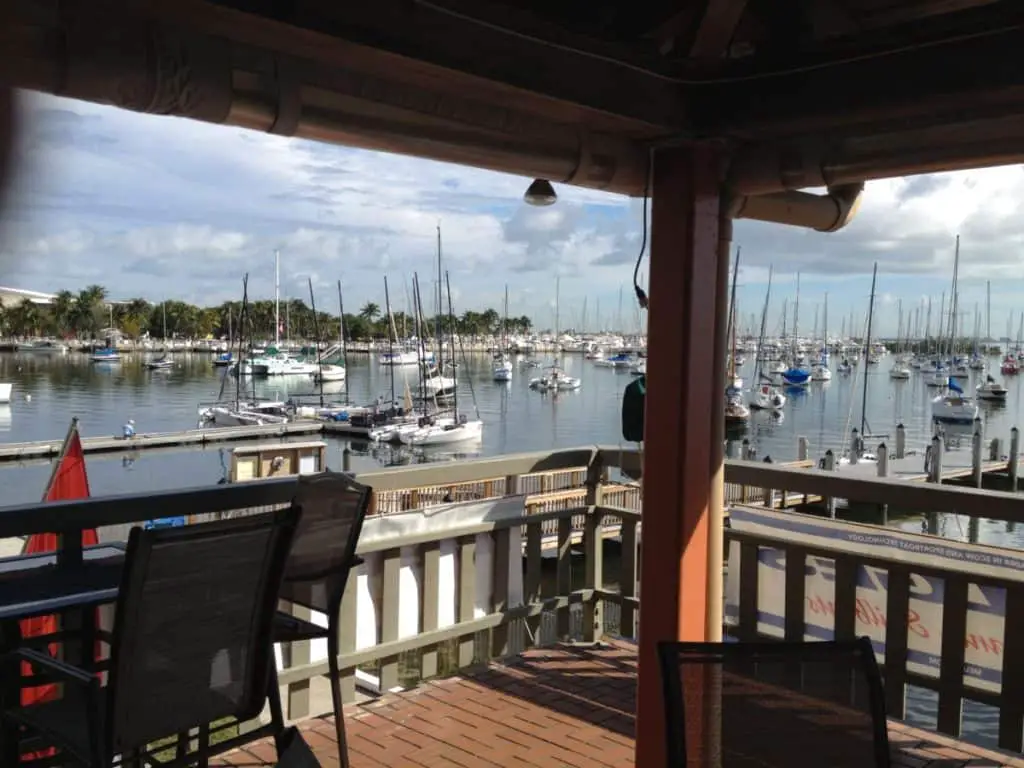As an Amazon Associate, we earn from qualifying purchases. We may also earn commissions if you purchase products from other retailers after clicking on a link from our site.
It is easy to romanticize the idea of living on a boat. It offers a calm and serene environment far from the hustles and bustles of the dry land, while also letting you get in touch with the nature-enthusiast that lives within each one of us. But freedom and calmness aside, is living on a boat cheaper than living in a house?
Living in a boat is significantly cheaper than living in a house in the same location. Those residing in boats pay a lower amount for amenities and monthly fees when compared to houses. Although a boat has a high initial cost, it has notably lower monthly costs.
In this article, I will discuss critical questions associated with this topic, including whether it is cheaper to live in a house or a boat, the various taxes applicable to living on a boat, and the approximate amount of money you need to do it. This article will also evaluate the cost-effectiveness of living on a boat and ultimately which locations are cheaper when living on a boat.
Is It Cheaper To Live in a House or a Boat?

It is cheaper to live in a boat than in a house. The monthly costs associated with living in a boat are less than those associated with renting an apartment in the same location.
One of the main features of most regions in the United States is the high rent costs. Accordingly, there is no shortage of testimonials from couples and individuals alike about the substantial cost savings after choosing a boat instead of a house.
For instance, Business Insider reports on the story of Sam Train and his wife, who opted to live in a boat as opposed to renting an apartment complex in San Diego.
According to their testimony, the couple only spent $2,200 a month to live in a boat, which was cheaper than spending between $2,500 and $3,000 in rent within the same location.
This provides a crucial glimpse of some of the costs associated with living on a boat, which is often much less than living in a house. To this end, the most considerable cost associated with living on a boat is the monthly fee to have your boat on a marina.
This fee can be approximately $1,000 a month, but of course, it may vary from state to state. The upside of this kind of arrangement is that this fee also covers utilities and some amenities, such as Wi-Fi, electricity, and water.
This fee also covers other aspects such as laundry, mail delivery, pool, and so on. Accordingly, the costs associated with living on the marina are very low, the largest of which may be maintenance fees.
When compared to the cost of renting an apartment building, things become clearer. Using the number of $2,500 of rent in a state such as San Diego, and then adding the cost of various amenities, which average at $250 every month, living on a boat stands out as the significantly cheaper option.
The table below shows the monthly rent amounts for three major cities in the United States:
| City | Monthly Fee (2 bedroom apartment) |
| San Diego | $2,500-$3,000 |
| New York City | $3,400 |
| San Francisco | $4,400 |
| Los Angeles | $1,756 |
In comparing the costs of a boat versus a house, Just Houseboats note that generally, the sum of the monthly expenses of maintaining a houseboat and the purchase price is still lower than the costs of housing in the same location.
This is understandable, considering the higher relative prices of houses versus houseboats. The growth in houseboat popularity is in part due to the high costs of rent and houses in major cities such as San Francisco and New York City.
However, it is essential to note that, unlike houses, your houseboat/boat will depreciate over time. While you will enjoy lower monthly expenses living on a houseboat, it’s not an asset as strong as a house.
Do You Pay Tax if You Live on a Boat?
You pay taxes if you live on a boat. You still have to pay use tax, sales tax, and property taxes. However, it is possible to get tax deductions for living on a boat.
I will discuss these different taxes below:
- Sales tax: This is a tax you pay after buying a boat. It is payable to the state where you purchased the boat.
- Use Tax: A use tax is what allows you to operate and store your vessel in the state you’re in. It is often an alternative to the sales tax.
- Property tax: This is an amount payable to the local municipality by those who dock their boats in the area.
While yacht owners and owners of other boats can avoid property taxes when they spend a prolonged time at sea, owners of houseboats have to keep their boat somewhere, often in a marina. As explained by Mansion Global, boat owners have to pay specific fees to the municipality.
In some states, you may also be subjected to property taxes, an annual fee that boat owners have to pay to the state. It is also worth noting that even when there are no set state taxes, such as in Maryland, you still have to pay any levies set at the local or municipality level.
Still, there are various advantages that boat owners can take advantage of. I will discuss some of these tax advantages below:
Tax Deductions
There are two main tax deductions available for boat owners, whether they’re living in it or not. These are as discussed below:
Tax Deduction for the Boat Being Your Second Home
This is a tax deduction you can get if you want to have a boat and also own a traditional house at the same time. By declaring your boat as your second home, you can get a tax break on your boat loan. However, if you’re planning to live on a boat in order to not own a house, then this option won’t be very helpful.
Tax Deduction for Your Boat as a Primary Residence
You are eligible for tax returns if you live on your boat as long as you claim that your boat is your primary residence. However, your boat has to have a bathroom, bedrooms, and a kitchen to qualify for this tax break.
Just like a traditional house, you can be eligible for similar tax deductions as long as you claim that the boat is your primary or secondary residence.
This can reduce your overall tax bill. You may enjoy deductions on your mortgage interest if your boat is collateral for the long-term loan you took to buy it.
How Much Does It Roughly Cost To Live on a Boat?

The approximate cost of living on a boat is roughly $1,500 to $2,500 a month. The monthly costs will largely depend on the marina fees and the monthly sum for amortization that you will pay for your boat.
If you’re looking for a boat that is best suited for you then I can help you on those problem.
The table below shows a breakdown of the costs of living on a boat:
| Particulars | Monthly Cost (rough estimate) |
| Amortization | 800 |
| Marina fees | 1,050 |
| Storage unit | 100 |
| Maintenance | 80 |
| Utilities | 250 |
| Waste disposal | Weekly: $25Monthly: $100 |
| Total | 2,380 |
It is essential to note that maintenance and storage fees are variable and depend on your state’s service costs. The amortization sum will depend on the value of the boat and the loan you took for it.
Marina fees will also vary across different regions and can be affected by factors such as the per foot storage rate and the monthly storage rate. Renting a boat slip will cost between $20 and $25 per foot each month.
Summing up, it will cost approximately $1,800 to $3,000 per month to live on a boat.
Is It Cost-Effective To Live on a Boat?
Living on a boat can be cost-effective depending on where you live. In most states, the monthly costs of living on a boat are lower than those of living in a traditional home. However, unlike houses, boats depreciate over time.
Living on a boat is especially an attractive option for those strained for cash, such as students burdened by student debt or retirees on a fixed income. In fact, one of the common themes among most people who have shifted from traditional homes to boats is that it is significantly cheaper.
However, from a cost-effective standpoint, it is prudent to evaluate all possible housing options to determine which is better, given your budget and your preferences. For instance, it may be cheaper to live in a van than a boat (which i am doing right now), depending on the marina fees and your monthly costs. Living in a boat definitely has significant cost savings that justify its high initial costs.
However, while living in a boat may give you service for 10 to 20 years, it is a depreciating asset. If you’re worried about your long-term finances, you will arguably be better served investing in a traditional house.
When and Where Is It Cheaper To Live on a Boat?

It is cheaper to live on a boat in major cities where the cost of renting an apartment is way too high. In such instances, living in a boat will not only allow you to live on a much smaller budget but may also provide more room than most two-bedroom apartments.
There is a wide variety of boats that you can explore to find the one that best suits your needs for a comfortable liveaboard experience.
The justification for living on a boat, as with any living arrangement, often comes down to costs and the costs of substitutes. As previously discussed, most people are opting for living on boats as an alternative to escape the high cost of housing, especially in major cities of the United States.
With monthly rents upwards of $3,000 per month for a two-bedroom apartment, it is easy to see why people from these cities consider living in a boat. However, most cities in the United States have a monthly rent lower of $1,500 or lower.
The table below shows the median monthly rent for 2-bedroom apartments in some cities in the United States that fall below $1,500.
| City | Monthly Rent |
| Memphis | $825 |
| El Paso | $826 |
| Louisville | $845 |
| Indianapolis | $856 |
| Detroit | $890 |
| Columbus | $956 |
| Houston | $1,024 |
| Phoenix | $1052 |
| San Antonio | $1,061 |
| Jacksonville | $1,073 |
As you can see, living on a boat doesn’t make much financial sense in the case of most cities. This is a dilemma for those who are living in expensive cities and don’t want to be away from them.
If living at a low cost is your only priority, you’ll be better off moving to a less expensive city.
Factors such as the marina fees will also influence your decision. If the monthly or annual fees are too high, living in a van or a small apartment will be cheaper—even if it’s an expensive city.
Let’s take a look at some of the cities where rent is high enough to justify living on a boat:
| City | Median Rent |
| Los Angeles | $1,756 |
| San Diego | $2,038 |
| Boston | $2,104 |
| New York City | $2,506 |
| San Jose | $2,644 |
| San Francisco | $3,113 |
Conclusion
Overall it is cheaper and more cost-effective to live on a boat, but your decision should be guided by factors such as fees, location, and the average rent in your location.
Living in a boat is definitely a good option for those who live in major cities, where the rent can be ridiculous. If you live in a small city, then this might not be the case.
Because most of the costs included in this article are estimates, I recommend consulting your local marina or a professional on the costs of living on a boat before taking a decision.
Sources
- Insider: How Much It Costs to Rent a 2-Bedroom Apartment in the 25 Biggest US Cities Right Now, Ranked
- Hi-Van: Van Life Vs. Boat Life: Which is Better?
- Business Insider Africa: I Gave Up My San Francisco Apartment to Live on a Boat. Here are 9 Things I wish I knew Beforehand
- Best Boat Report: How Much Does it Cost to Rent a Boat Slip?
- Yacht and Boat Guide: How Much Does it Cost to Live on a Boat?
- TurboTax: Can you Claim a Boat or RV as a Primary Residence?
- Yacht Management: Tax Advantages of Living on a Boat
- Mansion Global: If you Live on a Yacht in the U.S., Do you Have to Pay Property Taxes?
- Business Insider Africa: Rent in Cities Like NYC and San Francisco is So Expensive that it’s Pricing People Out of the Real-Estate Market, and Some of Them are Turning to Houseboats Instead
- Money Crashers: Living on a Boat Year-Round – Is It Possible?? Pros and Cons)
- The Log: Is Living Aboard a Boat Really a Reasonable Alternative to Buying a Home?
- Just House Boats: Are Houseboats Cheaper than Houses?
- Business Insider: One Couple Breaks Down the Costs of a Year Living on a Boat

